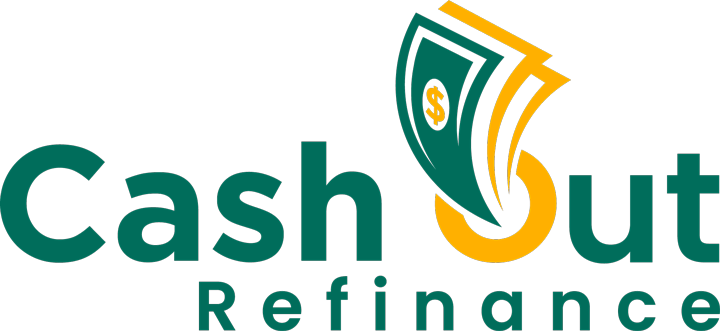Unlocking Property Equity for Fast Cash with a Hard Money Cash-Out Refinance
A hard money cash-out refinance is a financing tool that allows real estate investors and property owners to quickly access the equity in their properties. Unlike traditional lenders, hard money lenders offer asset-based loans, meaning approval is based primarily on the property’s value rather than the borrower’s credit score or income.
Hard money loans are ideal for house flippers, real estate investors, and business owners who need fast access to capital for renovations, new investments, or debt consolidation.
In this in-depth guide, we will explore:
✅ What is a Hard Money Cash-Out Refinance?
✅ How Hard Money Loans Work
✅ Eligibility & Loan Requirements
✅ Pros & Cons of Hard Money Cash-Out Refinancing
✅ Best Uses for Cash-Out Funds
✅ Step-by-Step Application Process
✅ FAQs & Real-Life Examples
What is a Hard Money Cash-Out Refinance?
A hard money cash-out refinance is a type of real estate loan that allows property owners to replace their existing mortgage with a higher loan amount, pulling out the difference in cash. Unlike traditional cash-out refinancing, hard money lenders focus primarily on the property’s value, making it easier for borrowers with lower credit scores or unconventional income sources to qualify.
💡 Example:
- Current Mortgage Balance: $200,000
- Property Value: $500,000
- New Loan Amount (70% LTV): $350,000
- Cash Received: $150,000 (minus fees & closing costs)
Key Features of Hard Money Loans:
✔ Fast Approvals – Funding can happen in days instead of weeks.
✔ Asset-Based Lending – Approval depends on property value, not borrower credit.
✔ Short-Term Loans – Typically 6 to 36 months, often interest-only payments.
✔ Higher Interest Rates – Rates range from 8% to 15%, higher than conventional loans.
💡 Hard money cash-out refinancing is an excellent solution for investors needing quick cash to fund real estate deals.
How Do Hard Money Loans Work?
Hard money loans are offered by private lenders or investment groups, rather than traditional banks. The loan approval process is faster and more flexible than conventional mortgages.
How the Loan Process Works:
1️⃣ Property Appraisal – The lender evaluates the current market value of the property.
2️⃣ Loan-to-Value (LTV) Assessment – Most lenders offer loans up to 65%-75% LTV.
3️⃣ Loan Approval – Minimal paperwork; approval is primarily based on the property’s value and exit strategy.
4️⃣ Funding – Loans are funded within days to a couple of weeks.
💡 Investors use hard money loans as short-term solutions to finance real estate projects, then refinance with a traditional lender later.
Eligibility Requirements for a Hard Money Cash-Out Refinance
Hard money loans have more relaxed qualification standards compared to traditional loans.
1. Loan-to-Value (LTV) Ratio
✔ 65% – 75% LTV is the standard maximum.
✔ Higher LTV may be available with additional collateral.
2. Property Type
✔ Single-family, multi-family, commercial, and mixed-use properties qualify.
✔ Distressed or non-traditional properties can be eligible.
3. Credit Score
✔ No strict credit requirements, but 550+ may be preferred.
✔ Loan approval depends on property value, not creditworthiness.
4. Exit Strategy
✔ Lenders want a clear plan for how the borrower will repay the loan.
✔ Exit strategies include selling the property, refinancing with a traditional lender, or paying off with rental income.
💡 Since hard money loans are short-term, lenders require a solid plan for repayment.
Pros & Cons of a Hard Money Cash-Out Refinance
Pros:
✔ Fast Access to Cash – Funding in days or weeks, ideal for urgent deals.
✔ Less Paperwork – No income verification or complex financial reviews.
✔ Flexible Loan Terms – Can structure loans for unique investment needs.
✔ Asset-Based Approval – No need for high credit scores or traditional financial proof.
✔ Invest in More Properties – Use cash-out funds to buy and flip more real estate.
Cons:
❌ Higher Interest Rates – Rates from 8%-15%, higher than conventional loans.
❌ Shorter Loan Terms – Usually 6 to 36 months, requiring fast repayment.
❌ Higher Fees – Origination fees range from 2%-5% of the loan amount.
❌ Risk of Foreclosure – If unable to refinance or sell, borrowers risk losing the property.
💡 Hard money loans work best for investors who can repay the loan quickly.
Best Uses for a Hard Money Cash-Out Refinance
🏡 Fix-and-Flip Investments – Buy, renovate, and resell properties for profit.
🔨 Property Renovations – Upgrade rental properties to increase rent and value.
📈 Real Estate Portfolio Expansion – Purchase additional investment properties.
💳 Debt Consolidation – Pay off high-interest business or personal debt.
💰 Business Capital – Fund business growth or start a new venture.
💡 Investors should have a plan to maximize the use of borrowed funds for the highest return.
Step-by-Step Application Process for a Hard Money Cash-Out Refinance
Step 1: Find a Hard Money Lender
✔ Research lenders specializing in investment property refinancing.
✔ Compare rates, fees, and loan terms.
Step 2: Submit a Loan Application
✔ Provide property details, loan amount, and purpose of funds.
✔ No tax returns or credit reports needed, but some lenders check credit history.
Step 3: Property Appraisal & Valuation
✔ Lenders conduct a property appraisal to determine loan eligibility.
✔ The higher the property value, the more cash you can access.
Step 4: Loan Approval & Funding
✔ Approval is quick, sometimes in 24-48 hours.
✔ Funding is typically disbursed within a few days to two weeks.
💡 Unlike traditional lenders, hard money lenders focus on the deal, not the borrower’s financial history.
Real-Life Examples of Hard Money Cash-Out Refinancing
Example 1: Fix-and-Flip Investment
✔ Investor Profile: House flipper
✔ Property Value: $400,000
✔ Loan Amount: $280,000 (70% LTV)
✔ Cash Received: $80,000
💡 Investor used funds for renovations, flipped the house for $550K, and paid off the loan.
Example 2: Buying Another Investment Property
✔ Investor Profile: Real estate investor with rental properties
✔ Property Value: $600,000
✔ Loan Amount: $420,000 (70% LTV)
✔ Cash Received: $150,000
💡 Investor used cash to buy another rental property to expand portfolio.
Frequently Asked Questions (FAQs)
Can I use a hard money cash-out refinance for a primary residence?
✔ No, hard money loans are for investment properties only.
Do hard money lenders require income verification?
✔ No, most lenders do not require income verification.
What is the typical loan term for a hard money refinance?
✔ Loan terms are usually 6 to 36 months.
Is a hard money cash-out refinance worth it?
✔ If you need fast access to cash for real estate deals, hard money loans are a great option.
Final Thoughts: Is a Hard Money Cash-Out Refinance Right for You?
🏡 A hard money cash-out refinance is a valuable tool for investors needing fast, flexible financing.
💡 If you’re ready to leverage your property’s equity, connect with a hard money lender today!


